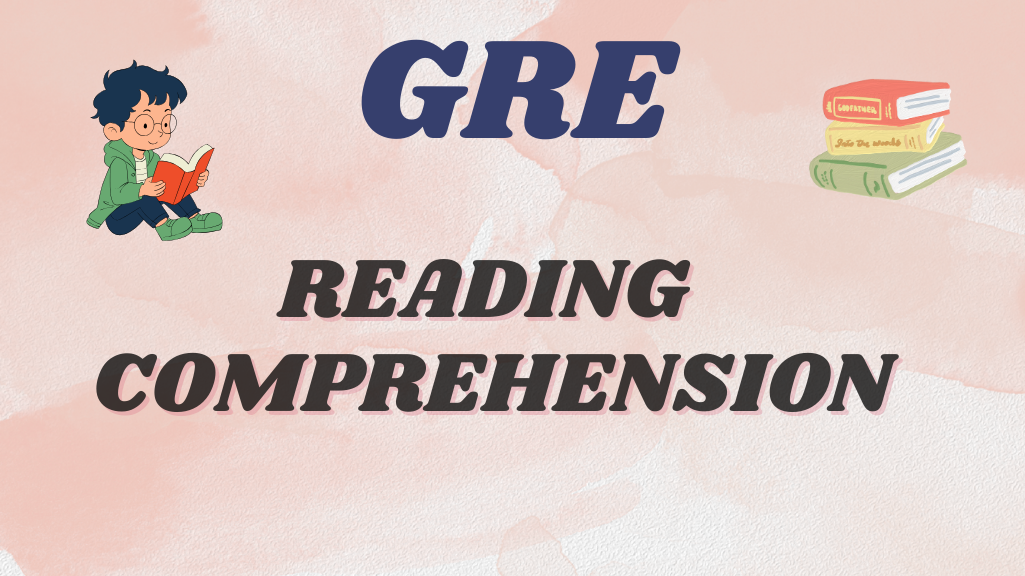The GRE Reading Comprehension section checks how well you can read, understand, and break down complex passages—just like the ones you'd deal with in grad school. It’s all about staying engaged, picking out key ideas, making smart guesses, and evaluating arguments. To crush this section, you need a solid game plan that fits the different question types and passage styles.
What is GRE Reading Comprehension?
Reading Comprehension in the GRE Verbal section consists of passages followed by questions that test your ability to comprehend and analyze information. Passages vary in length and subject matter, covering humanities, social sciences, natural sciences, and business.
Key Features of GRE Reading Comprehension
- Passage Length: Short (1–2 paragraphs) and long (3–5 paragraphs)
- Question Count: Approximately 5-7 passages with 1–4 questions per passage
- Topics Covered: Literature, history, economics, psychology, biology, and more
- Total RC Questions: About 50% of the Verbal section
Purpose
The goal is to assess your ability to:
- Understand individual words, sentences, and paragraphs
- Identify main ideas and supporting details
- Analyze an argument’s structure
- Make inferences and draw conclusions
- Evaluate an author’s assumptions and perspectives
For convenience let's take a look:
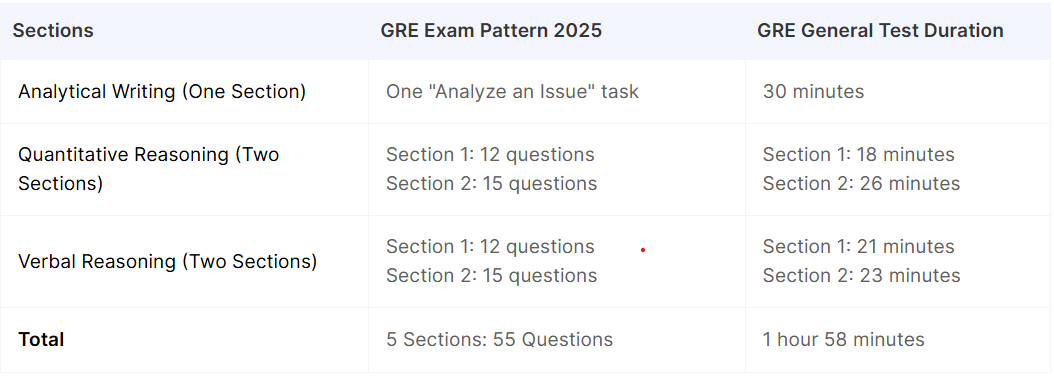
Sample Passage
Reviving the practice of using elements of popular music in classical composition, an approach that had been in hibernation in the United States during the 1960s, composer Philip Glass (born 1937) embraced the ethos of popular music in his compositions. Glass based two symphonies on music by rock musicians David Bowie and Brian Eno, but the symphonies’ sound is distinctively his. Popular elements do not appear out of place in Glass’s classical music, which from its early days has shared certain harmonies and rhythms with rock music. Yet, this use of popular elements has not made Glass a composer of popular music. His music is not a version of popular music packaged to attract classical listeners; it is high art for listeners steeped in rock rather than the classics.
Common Question Types
1. Multiple-choice (Select One Answer Choice)
- These traditional multiple-choice questions present five options, and you must select the single best answer.
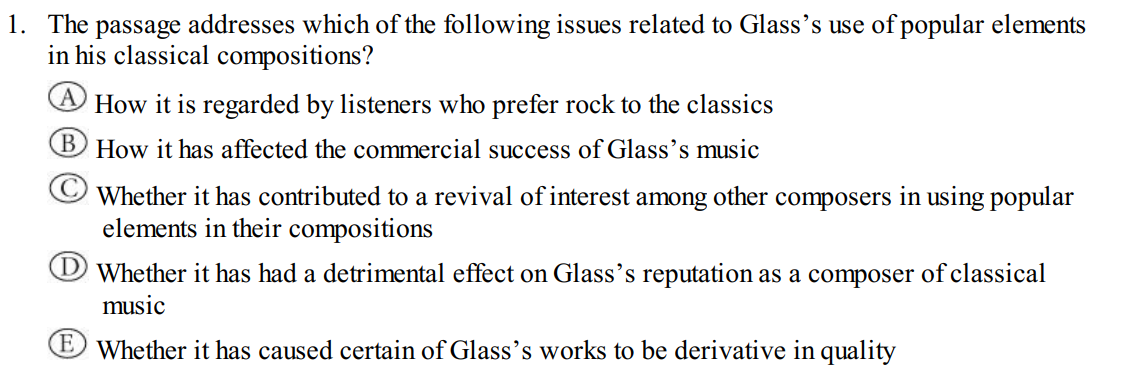

2. Multiple-choice (Select One or More Answer Choices)
- These questions provide three answer choices, and one, two, or all three may be correct.


3. Select-in-Passage Questions
- These require you to click on a specific sentence within the passage that meets the given description.


Key Strategies for GRE Reading Comprehension
1. Active Reading
- Approach each passage with an analytical mindset.
- Identify the author’s main point, tone, and argument structure.
- Take mental notes on paragraph transitions and relationships between ideas.
2. Identifying Main and Supporting Ideas
- Determine which sentences introduce key arguments and which provide evidence.
- Distinguish between an author’s opinions and factual information.
3. Recognizing Logical Relationships
- Look for contrasts, cause-and-effect relationships, and supporting examples.
- Identify whether ideas are being strengthened, weakened, or merely reported.
4. Making Inferences
- Infer missing information from the text without relying on outside knowledge.
- Consider the broader implications of statements rather than taking them at face value.
5. Eliminating Wrong Answers
- Avoid choices that introduce outside information.
- Beware of extreme wording such as "always," "never," or "must," unless explicitly stated in the passage.
- Reject answers that are only partially correct or misinterpret the passage’s meaning.
Approaching Different Passage Types
1. Argumentative Passages
- These passages present a claim supported by reasoning and evidence.
- Strategy: Identify the conclusion, supporting premises, and any counter arguments.
- Example: A passage argues that climate change policies should prioritize carbon capture technology over renewable energy subsidies. The author presents data on the efficiency of carbon capture, counters concerns about cost, and refutes the idea that renewables alone can solve the crisis.
2. Descriptive or Expository Passages
- These passages provide factual information without strong opinions.
- Strategy: Focus on understanding key concepts and distinguishing major vs. minor points.
- Example: A passage explains the water cycle, detailing evaporation, condensation, and precipitation. It describes how these processes contribute to global weather patterns without making any subjective claims.
3. Comparative Passages
- These contrast different viewpoints, theories, or methodologies.
- Strategy: Note key differences and similarities, and track where perspectives shift.
- Example: A passage compares two theories on language acquisition—one arguing that children learn through innate grammar structures (Chomsky’s theory) and the other proposing that social interaction shapes language development (Vygotsky’s theory). The passage highlights points of agreement and contention between the two perspectives.
Time Management
- Allocate 1-2 minutes to read shorter passages and 3-4 minutes for longer ones.
- Avoid rereading the passage entirely for every question; instead, refer back only as needed.
- Flag difficult questions and return to them after answering easier ones first.
Practice
Questions 1-3
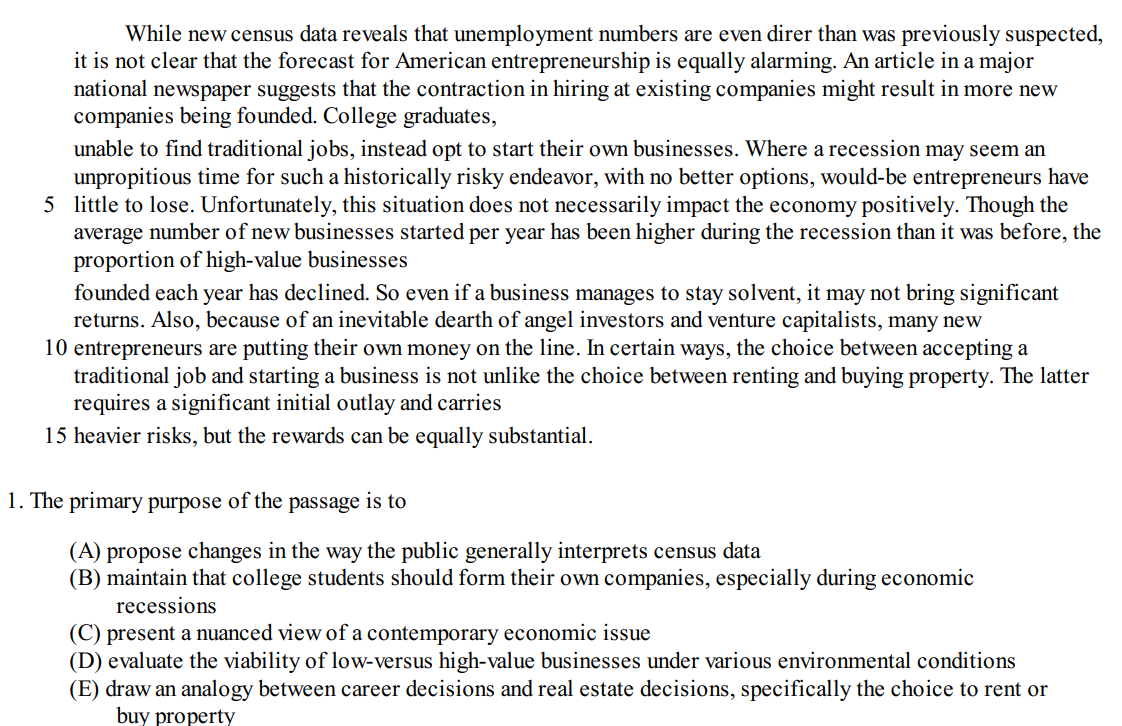
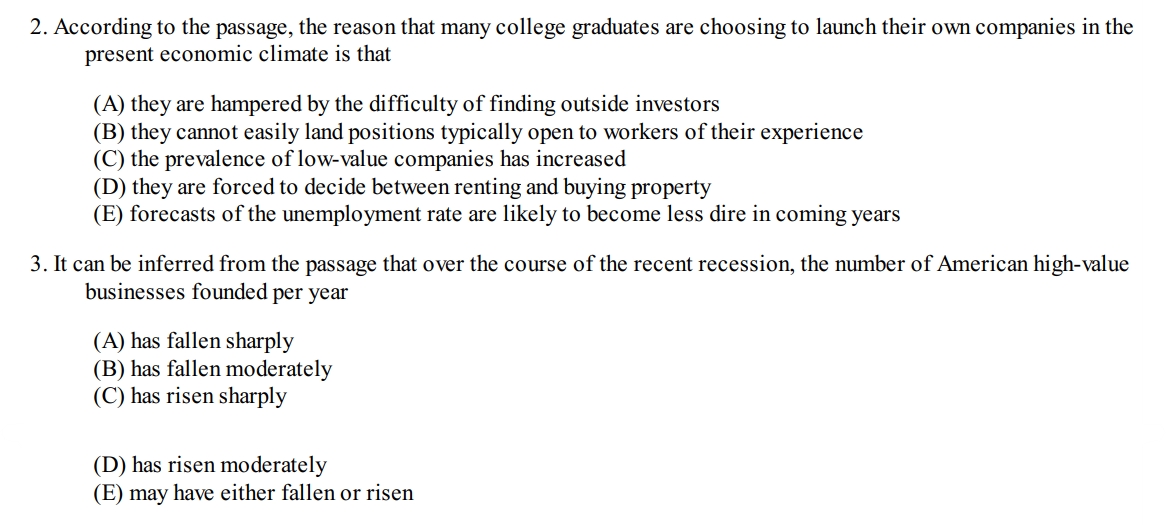
Solution:

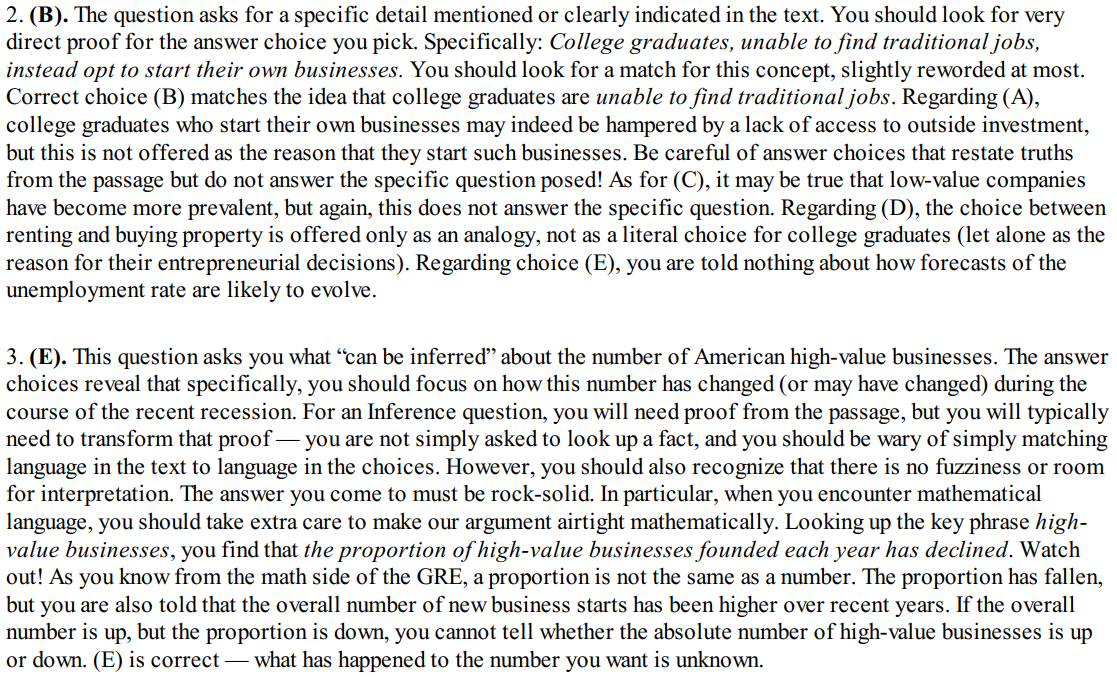
Question 4
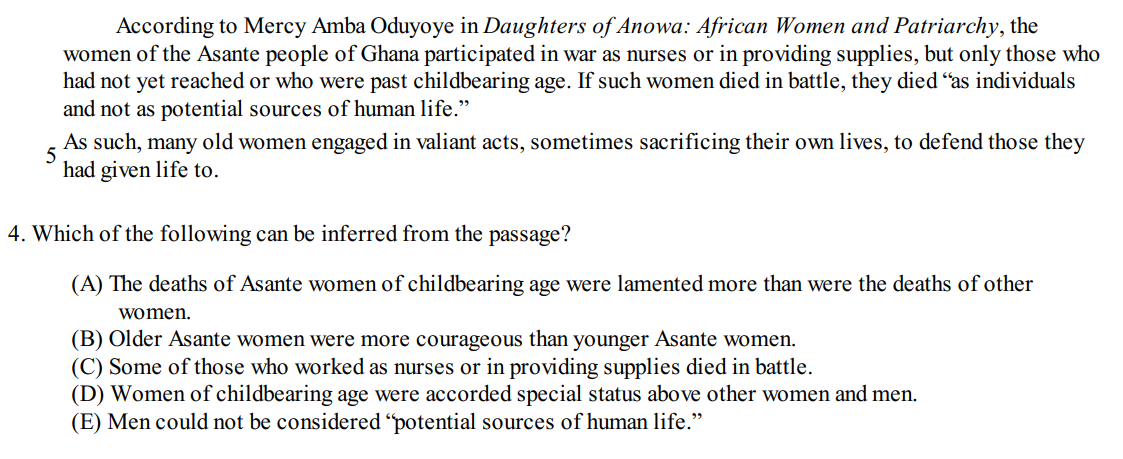
Solution:

Question 5-7
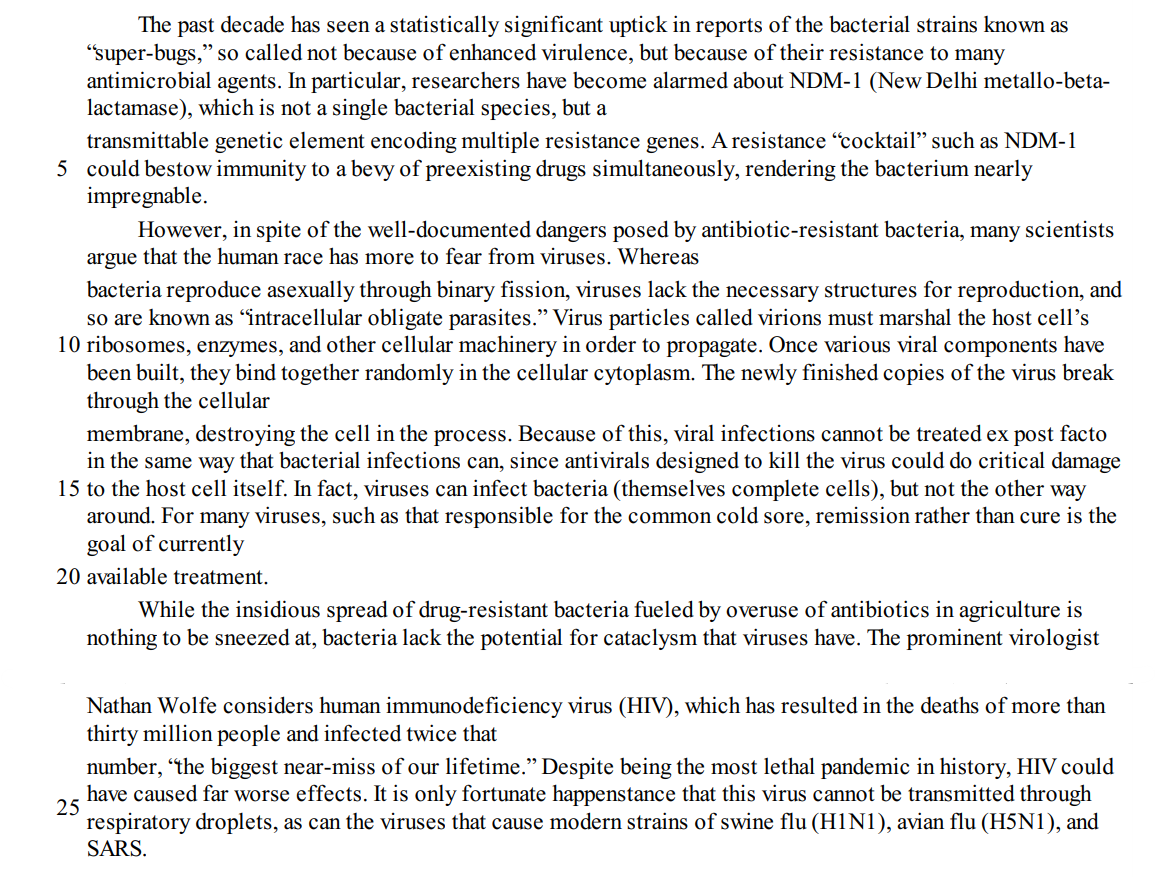
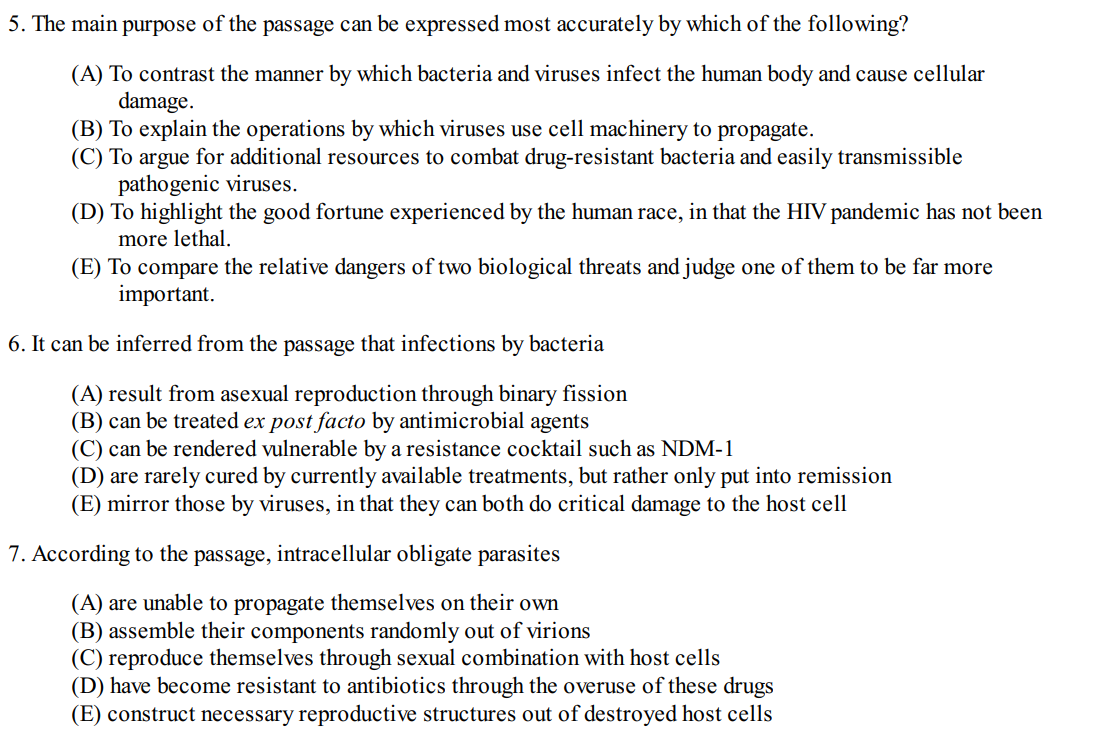
Solution:

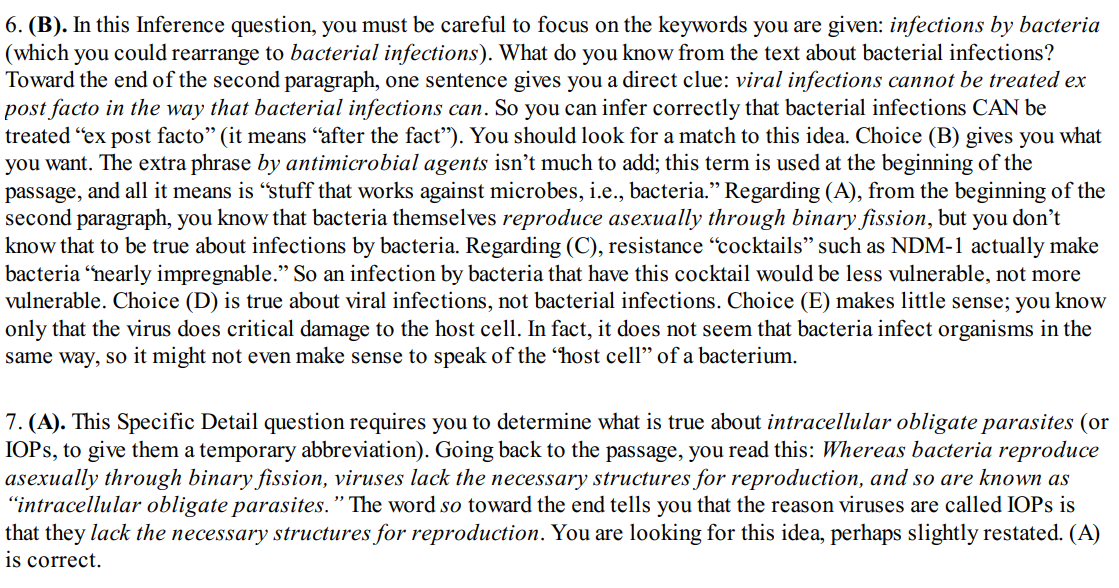
Question 8-10

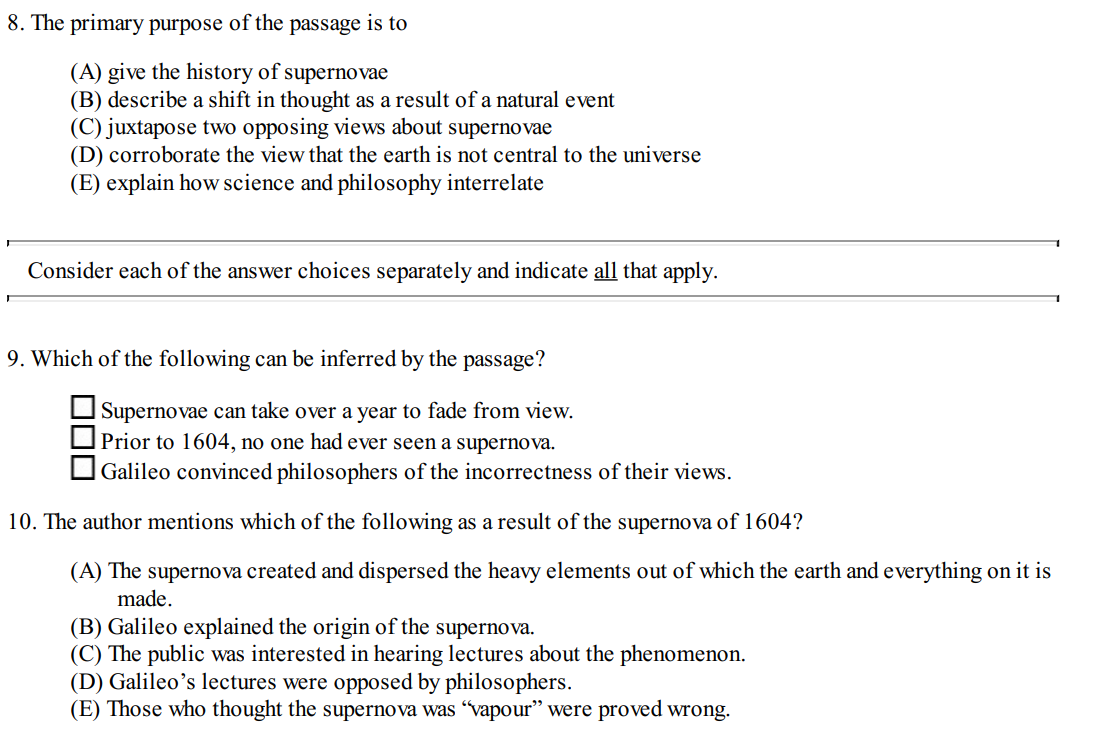
Solution:
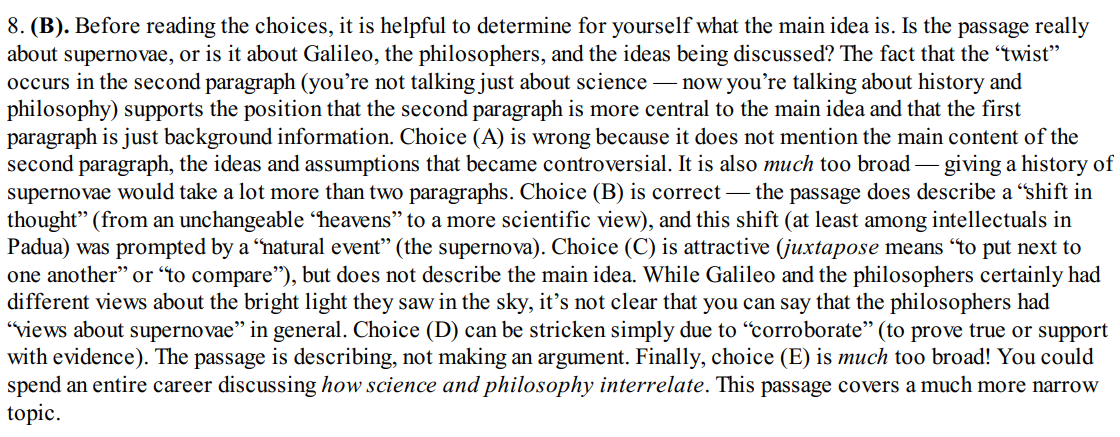
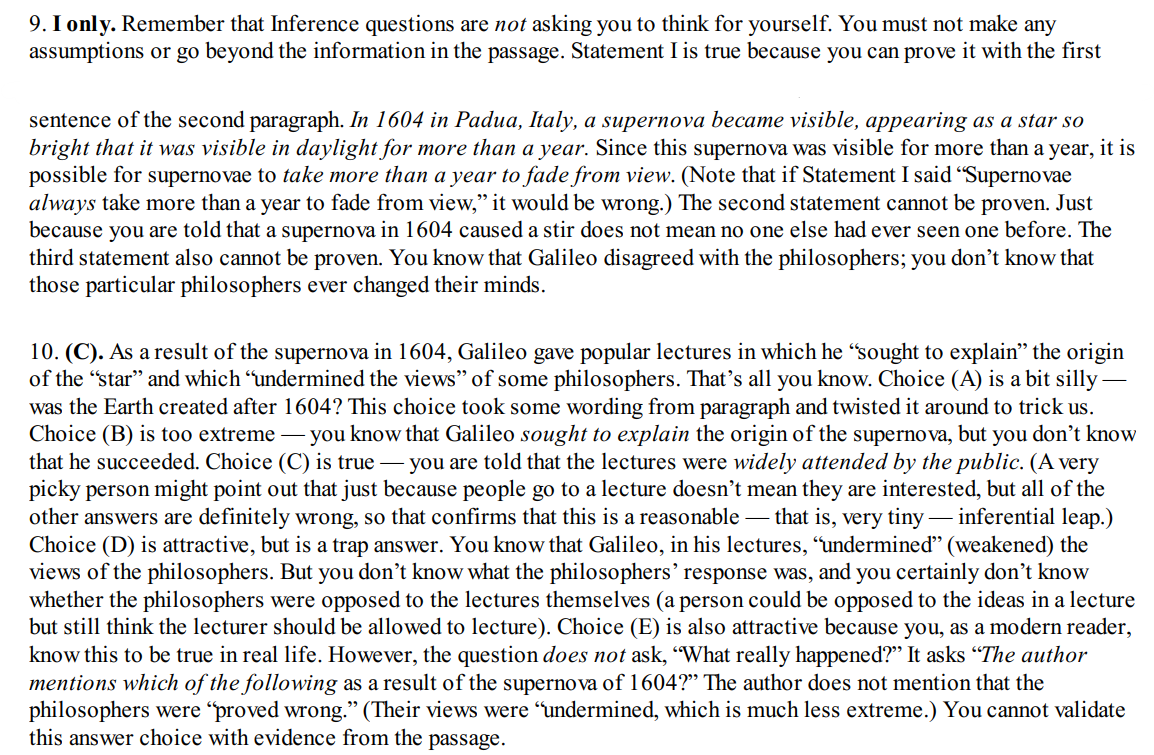
Question 11
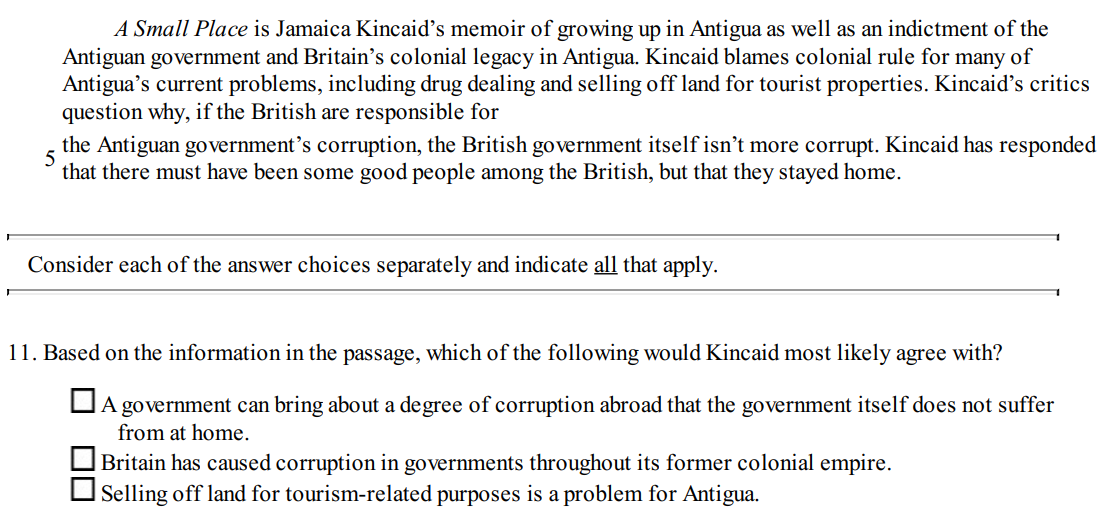
Solution:

Question 12-14

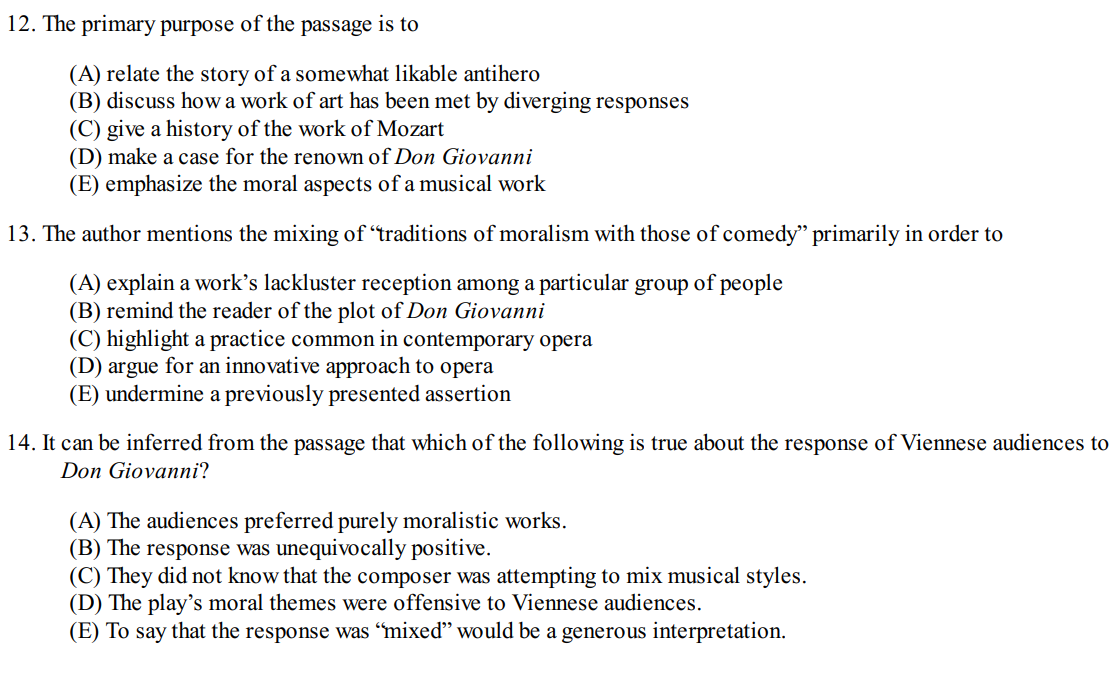
Solution:
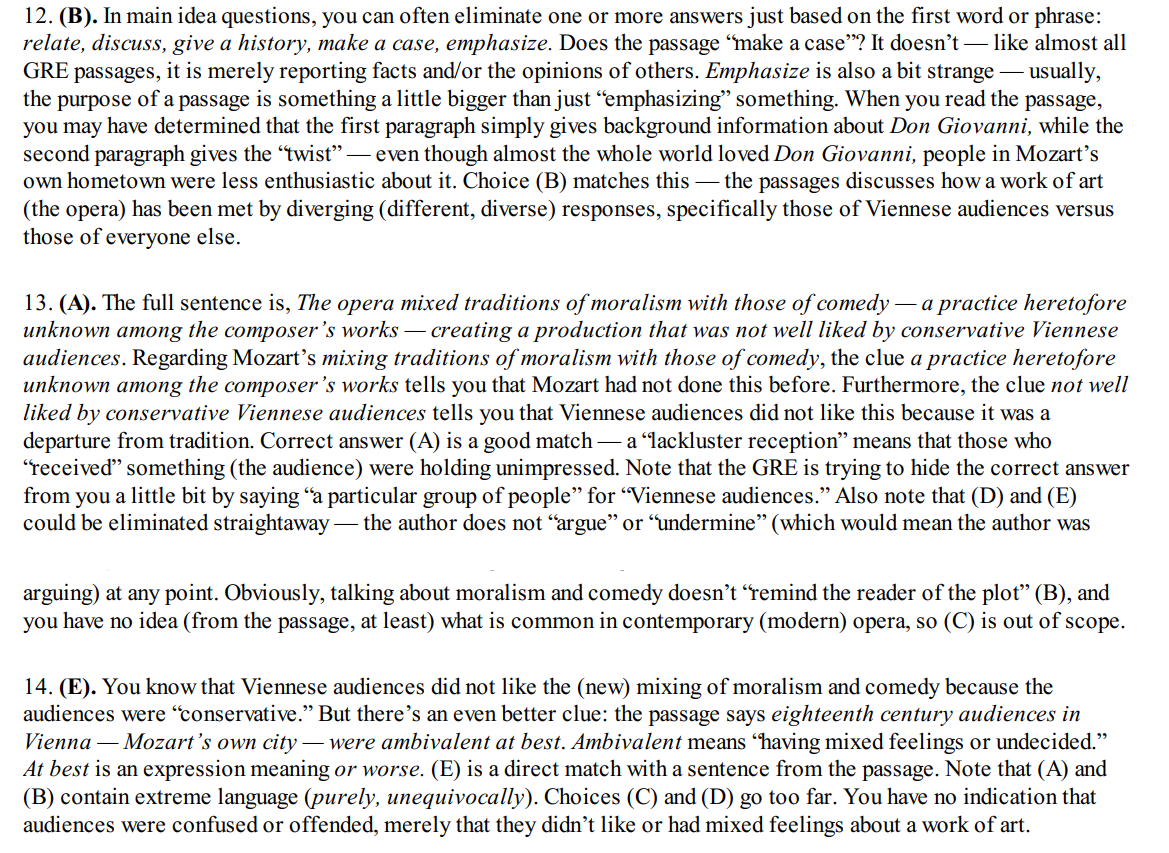
Question 15-17
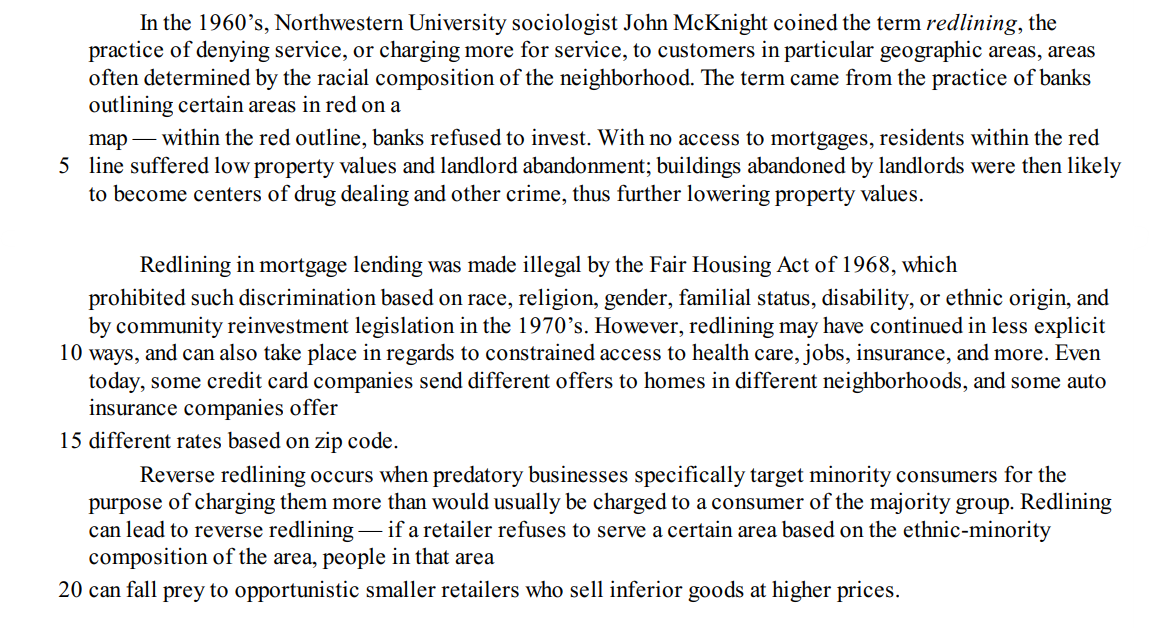
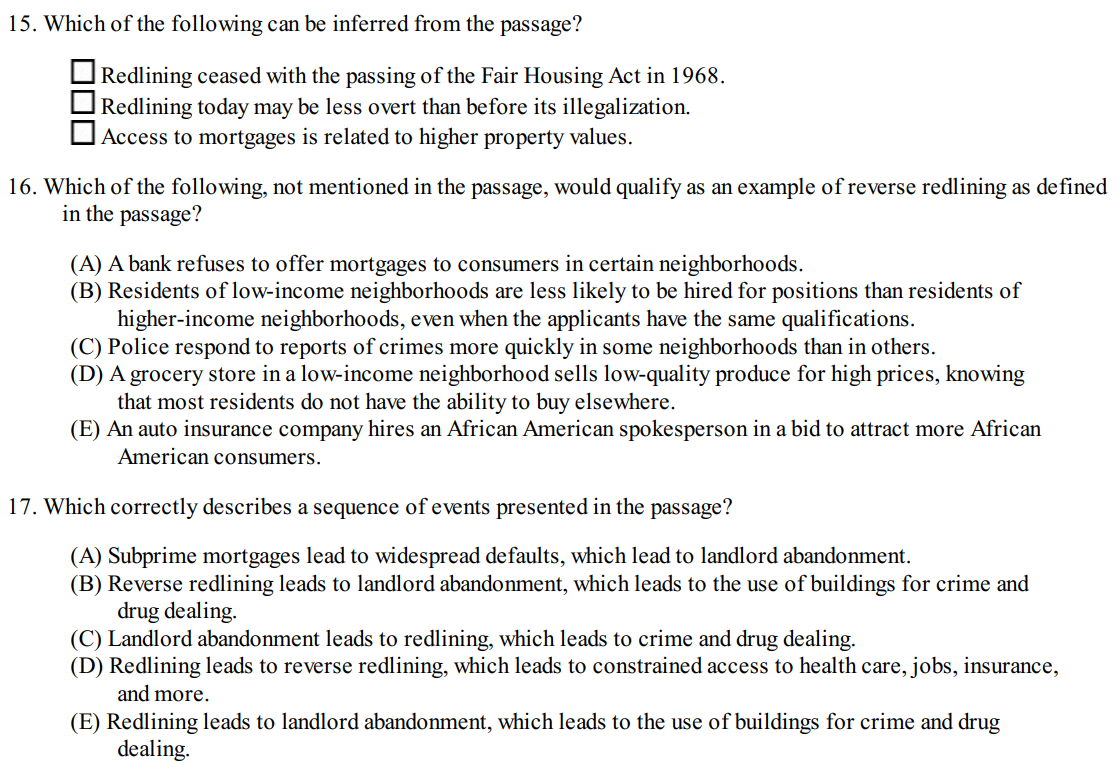
Solution:
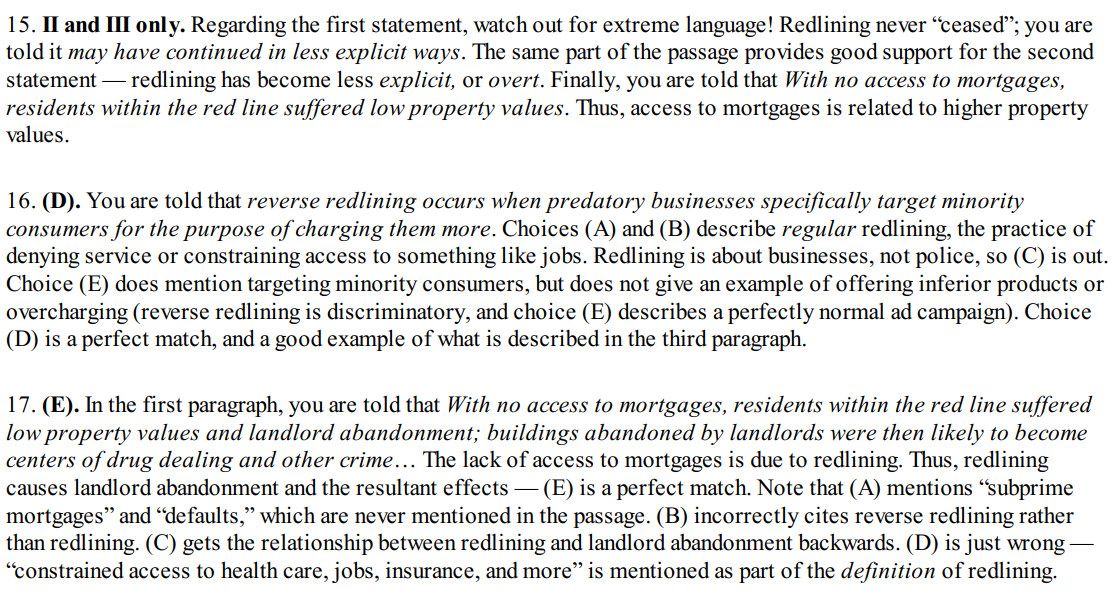
Frequently Asked Questions
1. How do I handle passages on unfamiliar topics?
Don’t worry if the topic is unfamiliar. The GRE doesn’t expect prior knowledge. Focus on understanding the structure, identifying the main idea, and following the development of the author’s argument. If a section is too technical, don’t get stuck; move on and focus on the big picture.
2. Should I read the passage or the questions first?
This depends on your preference. Some people skim the questions first, while others read the passage first for a clearer understanding. In general, reading the passage first is often better, as it gives you context before diving into the questions.
3. How can I eliminate wrong answer choices?
Look for extreme wording (like "always" or "never") which is often wrong unless explicitly supported in the passage. Be cautious of answer choices that twist the meaning of familiar terms or introduce outside information, as these are often incorrect.
4. What if I don’t understand a passage?
If you struggle with a passage, don’t panic. Revisit the first and last sentences of each paragraph to try to reconstruct the main idea. If that still doesn’t help, refer to the questions to identify which parts of the passage are most relevant. Answering simpler questions first might also give you insight into the passage.
5. How do I manage time effectively for Reading Comprehension?
Time management is crucial. Ideally, spend 1-2 minutes on short passages and 3-4 minutes on longer ones. Avoid re-reading the entire passage for every question. Focus on grasping the structure during your first read, and only go back to specific parts if necessary. If a question is too time-consuming, mark it and move on.
6. What’s the best way to practice for GRE Reading Comprehension?
Effective practice goes beyond just answering questions. Combine official GRE practice tests with real-world reading (e.g., The Economist or The New York Times). After practice, analyze why you made mistakes—was it due to misreading, extreme answer choices, or subtle right answers? This reflection will help improve faster.
7. Are there specific techniques to spot trick questions?
Yes! Watch out for "misleading detail" traps—answers that seem right but twist the passage’s meaning. Look for the "opposite meaning" trap, where answers contradict the passage. Also, be cautious of "inference stretching," where an answer goes too far beyond what the passage actually says.
8. How can I improve my reading speed without losing accuracy?
Speed and accuracy must go hand in hand. To read faster, practice guided skimming—focus on the first and last sentences of each paragraph and scan the middle for supporting details. Try reading in phrases instead of individual words to improve speed.
9. Does reading more books help with GRE Reading Comprehension?
Not necessarily. The GRE is testing your ability to analyze complex arguments, not just your reading habits. Instead of novels, focus on reading dense, academic materials like editorials, research papers, or analytical essays to better match the GRE’s style.
10. What’s the best way to handle tricky vocabulary in passages?
You don’t need to understand every difficult word. Look at the surrounding context for clues, and don’t assume a tough word is key to answering a question. The GRE often uses complex words to make the passage seem harder than it really is—focus on the overall meaning instead of getting stuck on individual words.
